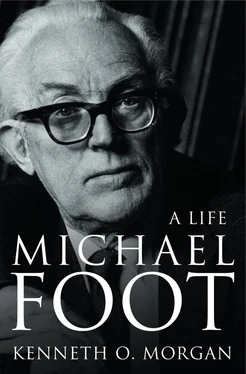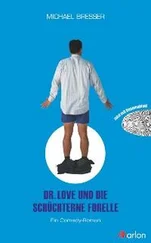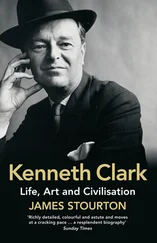The newspaper introduced Foot as ‘the brilliant young left-wing author and journalist’, and his first column appeared on 15 August 1944. After an initial appeal to idealism, it dealt with the congenial theme of the need to avoid any secret treaties that might pervert a post-war settlement. His columns gave Foot ample scope to cover a vast swathe of topics, mostly international, succinctly and even violently, with ample use of historical analogy and literary quotation. On 25 August he hailed the liberation of Paris, with much citation of Fox, Tom Paine, Hazlitt, Wordsworth, Shelley, Byron and others from his Valhalla of heroes. He took time out on 15 September to rebut Bernard Shaw’s characteristically perverse clarion call against all political parties, and advised him to look at the reconstruction needs in Plymouth which the Tory caucus was trying to wreck. Two weeks later came the cry that ‘only the international faith of Socialism can win the final triumph – Shout it from the housetops!’ There followed a lengthy series of familiar assaults on individual Tories, ‘guilty men’ one and all – Leslie Burgin, W. S. Morrison, Lord Woolton, Lord Linlithgow (the Viceroy who had imprisoned Nehru), Lord Croft. There is on 5 December a good Labour kick at the Liberal William Beveridge for wanting industry to remain in private hands and opposing redistributive taxation: ‘He travels on the Queen Mary yet believes he is Columbus!’ Over the new year he is denouncing the ‘tragedy’ of Britain’s intervention in Greece, though also challenging far-left critics by condemning Russian involvement through the Lublin government in Poland: ‘Will the Poles have liberty?’ On 20 March 1945 he is drenching with ridicule the hapless National Liberals like Ernest Brown. The opportunity is predictably seized to stick more darts into the Member for Devonport, Leslie Hore-Belisha, ‘a lonely giant’ who not only received a medal from Mussolini but also voted to remove Churchill from office in 1942, while Rommel was close to Alexandria. On 5 April there is a moving tribute to a genuine Liberal, David Lloyd George, whose great life had come to an end, but whose career was marked by tragedy because he had been compelled to govern with the Tories (this, of course, at a time when Labour ministers were still entrenched in Churchill’s coalition). It is lively, knockabout stuff, but fierce, even vicious, with skilful one-sided argument and a populist approach for the voting public.
But his most serious enterprise was becoming an MP, and Plymouth therefore called him more and more. A seat Labour had never looked like winning, Devonport was located in a part of Britain in which, as Andrew Thorpe has shown, Labour was traditionally very weak. It was clearly going to be a tough contest. Isaac had anticipated this with some relish: ‘You didn’t commit yourself to a clean fight, I hope?’ 33 Early on, Foot was challenged at meetings there in 1944 about his not doing military service, and had to explain his medical circumstances, the asthma which led to his being given Grade IV. He insisted he had not been a conscientious objector. He was also interrogated about having worked for the right-wing Beaverbrook press. The Standard was a very good paper under his editorship, he said: ‘He had left of his own free will because someone was trying to interfere with his rights as to what he wanted to write in that newspaper.’ 34 Needlessly, he threw back provocations of his own, including much personal insult (never anti-Semitic) of Hore-Belisha.
The Labour Party had made progress in Plymouth since the early 1930s. The council had a Labour majority, and Foot was later to pay tribute to some of the key local personalities, Harry Mason (the council leader), Harry Wright (its finance officer) and Bert Medland, one of the MPs elected in 1945, and later to serve as Foot’s election adviser in 1950. 35 But it was still going to be a very tough contest in a city that had undergone tough experiences. Plymouth, a place with much ancient slum housing, had also been a significant victim of the blitz, as was the fate of all seaports and naval centres. On 20–21 March 1941 there was heavy bombing by Heinkels, as it happened while George VI and Queen Elizabeth were visiting the naval barracks and dockyards. The centre of the city was set ablaze, leaving 292 civilians dead. Worse was to follow on 21–23 and 28–29 April, when many tragedies occurred. Seventy-two people were killed when an air-raid shelter in Portland Square was hit, and so were ninety-six sailors in the naval barracks. In the final assault on 29 April, the Devonport High School for Girls was hit, forty-three sailors were killed on HMS Raleigh , and 100,000 books destroyed by fire in the Central Library. The rebuilding of Plymouth after the war inevitably became a theme of bitter political contention. Foot wrote an article in Reynolds News in October 1944, ‘Plymouth is Betrayed’, condemning the government for refusing to grant national funding to assist the local council’s Plymouth Plan. Lord Astor, the outgoing Conservative Mayor of Plymouth, supported the plan, as did his wife. 36 So too did the incoming Mayor, none other than Isaac Foot. But Hore-Belisha insisted that local reconstruction could only be a local responsibility. The entire issue occasioned intense debate. The clerk of a local district council warned Isaac Foot that his son’s support of the ‘extravagant’ city plan, ‘creating unnecessary overspill’, might lose him half his supporters. 37 Foot also gave his backing to the plan of the celebrated town planner Patrick Abercrombie for Plymouth in 1943, which would have created a large, multi-purpose Tamarside local authority.
By the early spring of 1945, the end of the war was clearly in sight. Twelve days after VE-Day on 8 May, the Labour Party decided to leave the Churchill coalition. A purely Conservative ‘caretaker’ government took over, to prepare the way for a general election, eventually announced as to be held on 5 July – or rather, it was a government which also included some of the ghostly National Liberals, known briskly to Michael’s brother Dingle as the ‘Vichy Liberals’. 38 To Foot’s immense derision, the man appointed as the new Minister of National Insurance in Churchill’s ‘caretaker’ government was none other than Mussolini’s erstwhile acquaintance Leslie Hore-Belisha, perhaps another Caligula’s horse; though not of Cabinet rank.
Michael Foot’s journalism reached a climax now. In mid-April he was sent by the Herald to San Francisco to cover the conference to launch the new United Nations; it was his first visit to America since his debating tour with John Cripps in 1934. He wrote eight somewhat atmospheric articles describing the conference, which were published in the Herald between 17 April and 29 May. He focused mainly on trying to convey the mood of the conference, discussed some of the issues, notably Poland and the Lublin government, and assessed some key personalities including the Soviet Foreign Minister Molotov, whom he found ‘mysterious’ and who of course he knew as a key figure in the pre-war show trials. He had a number of interesting encounters, notably with the future Australian Foreign Minister Dr H. V. Evatt. In a relaxed aside he noted that at one meeting he sat next to the romantic French film actor Charles Boyer. 39
But Foot was anxious to return home. There was a vital election to fight, and time was getting short. He also had an even more pressing reason to get back, something to change his life even more fundamentally than his election to Parliament. He had met Jill Craigie. 40 Previously his affections had focused strongly on Connie Ernst, who had returned to New York at the end of 1944 and whom he had asked to marry him. He travelled to San Francisco via New York, and was with Connie on 12 April 1945, the day President Roosevelt died. But, to the disappointment of Koestler amongst others, Connie regretfully but decisively declined the offer: she did not wish to live in post-war London. She went on to marry Simon Michael Bessie, a publisher who in the 1960s actually became Foot’s publisher and remained friendly with him, even though his marriage to Connie ended in divorce. Bessie was also to publish in America the works of Jill’s later great friend and heroine Rebecca West.
Читать дальше












